The disturbing findings about teenagers and mental health from a new survey on energy drinks
Caffeine-loaded energy drinks are depriving Aussie teens of sleep, which could prove harmful for their mental health.

Nutrition
Don't miss out on the headlines from Nutrition. Followed categories will be added to My News.
- Hidden dangers of sugary drinks revealed
- High-sugar kids’ snacks named and shamed
- After-school care is a mess and needs fixing
Caffeine-loaded energy drinks are depriving Aussie teens of sleep, a major new survey shows, and experts want advertising of the products banned on government transport.
A Cancer Council Australia’s survey of more than 9000 students from across the country found teens who consumed energy drinks at least once a week were twice as likely to get less than eight hours sleep on a school night than those who didn’t.
Around 1 in 14 teenagers said they consumed energy drinks at least weekly and one in four had consumed energy drinks at least once.
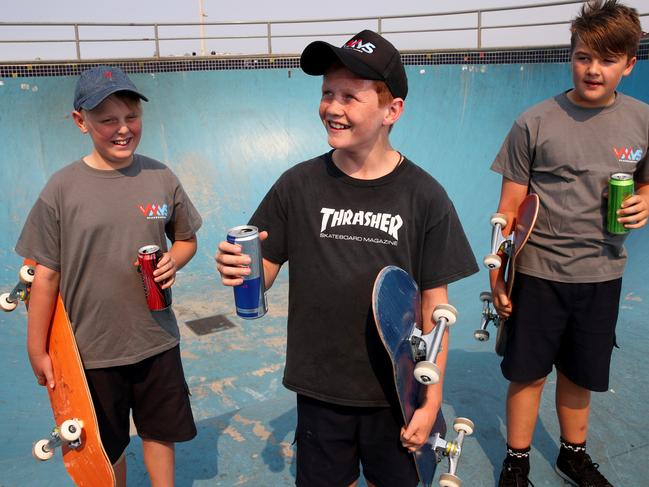
The survey also showed teenage boys were significantly more likely than teenage girls to be weekly energy drink consumers.
The controversial drinks have been associated with a series of deaths and hospitalisations around the world, can be dangerous when combined with alcohol and are implicated in weight gain because of their high sugar content.
The Sleep Health Foundation says teenagers need 8-10 hours of sleep, more than an adult, because their bodies and cognition are growing rapidly.
Sleep is vital for teen mental health and the US Sleep Foundation says lack of sleep can contribute to acne, aggressive behaviour and unhealthy eating habits.
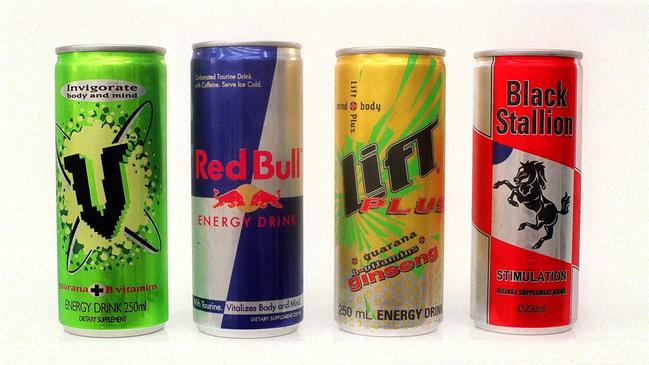
Craig Sinclair the Head of Prevention at Cancer Council Victoria, a partner of Rethink Sugary Drink, said energy drinks also contain large amounts of sugar that is driving weight gain among teenagers.
The same Cancer Council survey found one in six (17 per cent) teenagers consume at least 5.2 kilograms of sugar each year from sugary drinks alone.
“This can lead to weight gain and obesity, increasing the risk of heart and kidney disease, type 2 diabetes, stroke and some cancers,” Mr Sinclair said.
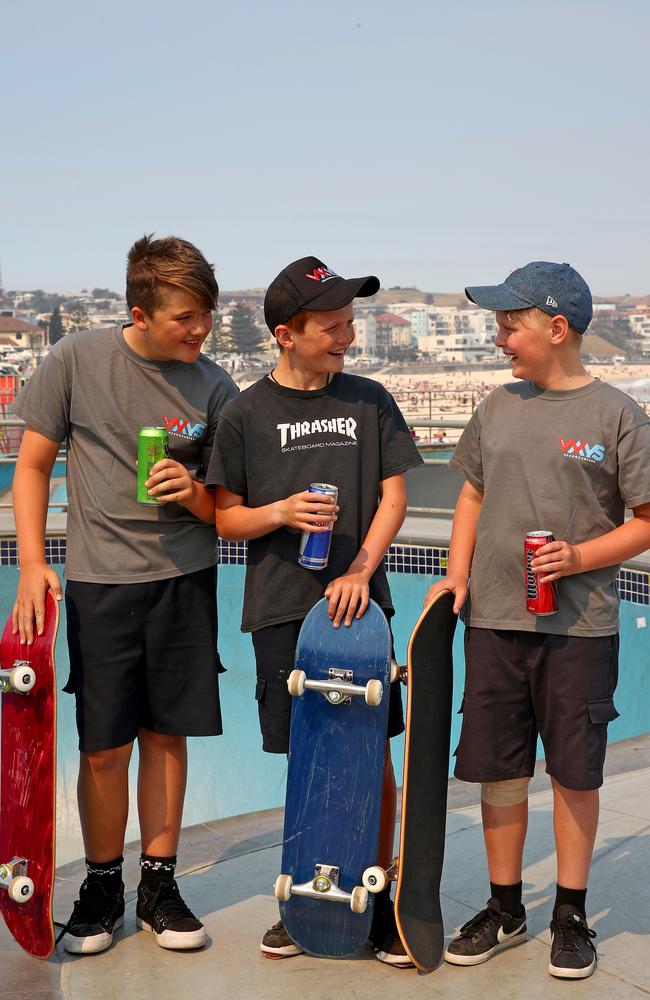
The standard energy drink bottle is 500 ml compared to 375 millilitres for soft drinks and this means double the amount of sugar - 21 teaspoons in some energy drinks compared to 10 teaspoons in a smaller bottle of soft drink, he said.
MORE NEWS
Don’t mix energy drinks and alcohol
My Health Record exposed to security risks
This is three times the recommended daily limit for added sugar in the diet.
The caffeine content of the drinks is also high and this could explain the survey results on their effect on teenage sleep.
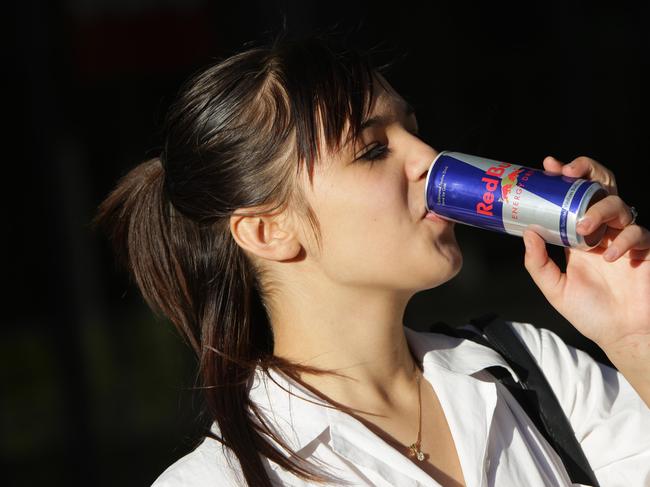
Energy drinks contain 160 mg of caffeine, more than twice as much as a cup of coffee or a 500 millilitre bottle of cola, Mr Sinclair said.
Sydney 11-year-olds Jett Jones and Luan O’Connor have tried energy drinks but both acknowledge they are not healthy.
Jones said: “It gave me a bit of energy but I read in the news that someone had a
heart attack after drinking them so I’m not a big fan.”
“Some of my friends at the skate park drink them and they offer them to me but I say no and tell them how bad it is.
“I think they shouldn’t sell them at all, to kids or even to anyone.”
O’Connor, a skateboarder from Bondi, said he drinks energy drinks in the morning so he
doesn’t have any trouble sleeping at night.
However, he thinks it would probably be a good idea to have an advertising restriction on the drinks.
“I’m not sure the drinks are very good, I know that caffeine is bad for your heart,” he said.
Associate Professor Matthew Hopcraft the Chief Executive Officer of the Australian Dental Association Victorian said energy drinks are also a major contributing factor to tooth decay and tooth erosion.
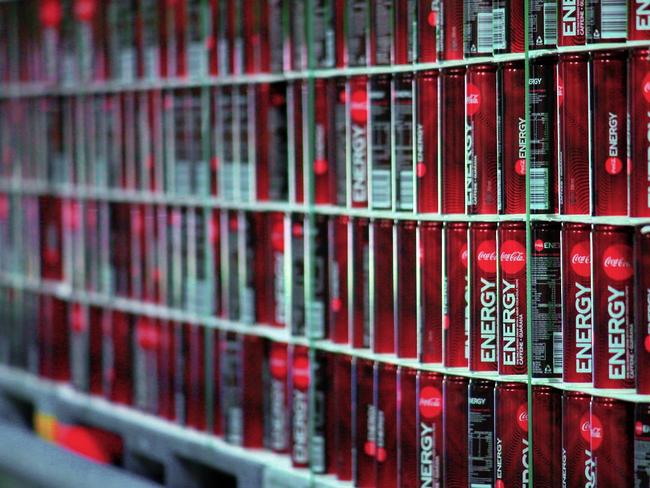
Royal Prince Alfred Hospital cardiologist Professor Chris Semsarian has tested the effects of energy drinks on the heart and said they can lead to an increased heart rate and increased blood pressure and heart palpitations.
“Caffeine is not the only stimulant component of these drinks, most also have guarana which is also a stimulant,” he said.
Energy drinks have been linked to scores of deaths around the world because their high caffeine content.
A Perth man died of caffeine toxicity in 2014 after consuming four energy drinks a day and in 2018 a teenage girl died after consuming what appeared to be a mix of alcohol and energy drinks.
There were 300 calls relating to caffeinated energy drinks made to the NSW Poisons Information Centre between 2004 and 2010, 128 of which resulted in hospitalisation.
Cancer Council Victoria is concerned at the heavy marketing of energy drinks at music festivals and other youth events.
“We should be restricting the marketing of these products on government transport, railways and near schools,” Mr Sinclair said.
Professor Semsarian said another solution would be to ban sales of the drinks to young people under a certain age.
CEO of the Australian Beverages Council Geoff Parker said by law all energy drink labels carry warning labels that the drinks aren’t suitable for children.
The amount of caffeine in a small can is limited and a 500ml bottle had the same amount as two cups of coffee, he said.
The companies have adopted a series of commitments which include no direct marketing or advertising to children, and no sales of energy drinks in any school – primary or secondary.
Anyone consuming caffeine drinks, including coffee late in the day had trouble sleeping, he said.
“Government data shows the average 14-16 year old gets almost 10 times the amount of dietary caffeine from coffee compared to energy drinks,” he said.
Originally published as The disturbing findings about teenagers and mental health from a new survey on energy drinks
